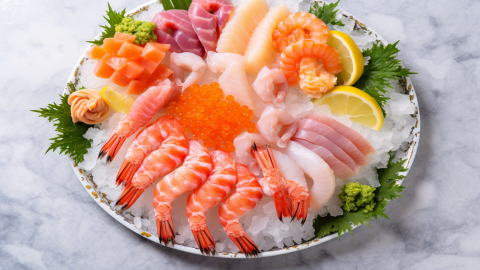Six types of food not to eat after chemotherapy
Generally speaking, there is no specific list of "six foods not to eat after chemotherapy." However, patients should avoid raw seafood, spicy peppers, greasy fried chicken, overly sweet desserts, and strong black tea after chemotherapy. These foods may increase gastrointestinal burden, induce infections, or affect physical recovery, thus being detrimental to post-chemotherapy rehabilitation. The specific reasons are as follows:

1. Raw seafood: Raw seafood such as sashimi, oysters, and undercooked shrimp or crabs may carry bacteria or parasites. After chemotherapy, the body's immunity is reduced, and consuming these foods may easily cause gastrointestinal infections, leading to discomfort such as diarrhea and abdominal pain, thereby increasing the body's burden.
2. Spicy peppers: Peppers are hot in nature and contain capsaicin, which is highly irritating. After chemotherapy, the gastrointestinal mucosa is usually fragile. Consuming peppers may irritate the mucosa, possibly causing stomach pain and diarrhea, and may also worsen chemotherapy-related discomfort such as oral mucositis.
3. Greasy fried chicken: Fried chicken has high fat content and a greasy texture, making it difficult to digest. Digestive function is weakened after chemotherapy, and consuming such foods may increase the burden on the gastrointestinal tract, leading to indigestion and abdominal distension. It may also affect the absorption of nutrients such as proteins, which is not conducive to physical recovery.
4. Overly sweet desserts: Foods such as cream cakes, candies, and sugary beverages contain extremely high levels of sugar. Excessive sugar intake may lead to blood sugar fluctuations and promote oral bacterial growth, worsening common oral discomfort after chemotherapy. It may also affect appetite, which is not beneficial for balanced nutrient intake.
5. Strong black tea: Black tea contains large amounts of caffeine and tannic acid. Caffeine can stimulate the nervous system, possibly worsening insomnia and anxiety after chemotherapy. Tannic acid can combine with iron and proteins in food, hindering nutrient absorption and affecting physical recovery.
In daily life, besides adjusting diet to aid recovery after chemotherapy, patients should also choose bland, easily digestible foods, and consume small meals frequently to replenish nutrients. Appropriate rest should be taken to avoid excessive fatigue, and indoor air should be kept circulating, which helps improve physical comfort and promotes recovery.




